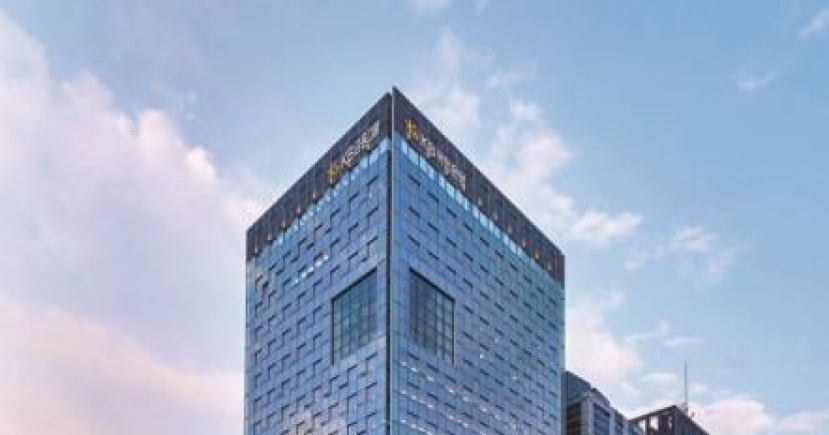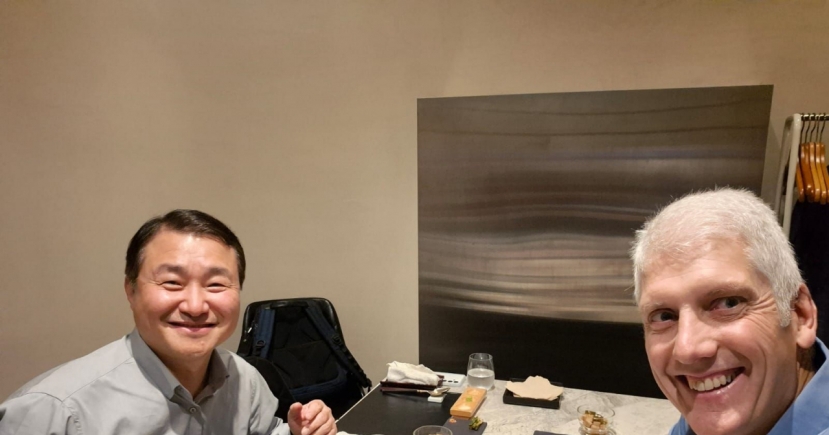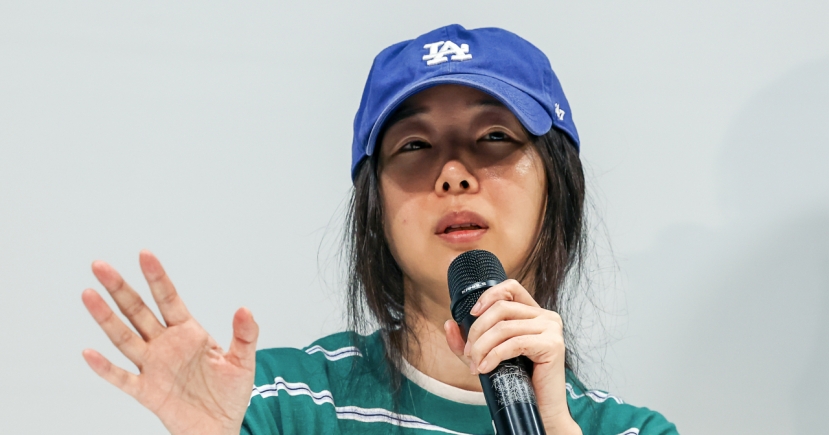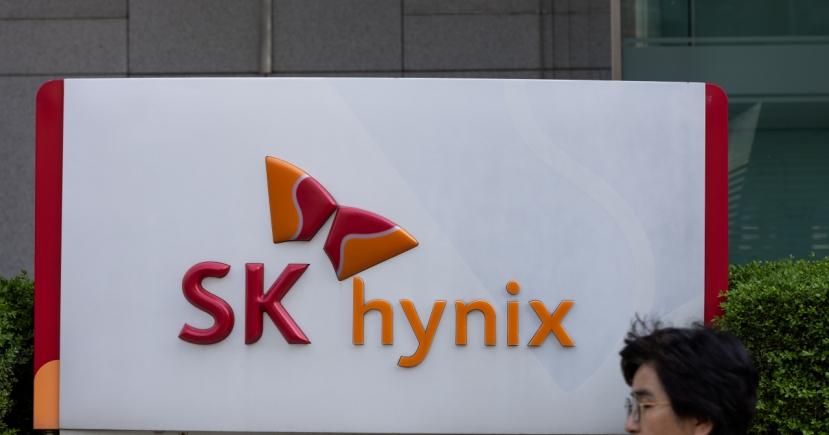Economy
Chinese envoy reignites anti-THAAD campaign
[THE INVESTOR] For Seoul, this week’s visit by Wu Dawei, special representative for Korean Peninsula affairs at Beijing’s Foreign Ministry, is timely and weighty, coming amid spiraling concerns over North Korean provocations and shortly after a US-China summit.
Yet as soon as he wrapped up his first day with business-as-usual diplomatic consultations, Wu embarked on a mission that may possibly serve what critics say is the real purpose of the trip: meeting with South Korean presidential candidates to appeal against the stationing here of the US’ Terminal High Altitude Area Defense missile shield.
The 71-year-old envoy held a series of talks on April 11, starting with Rep. Yoo Seong-min of the conservative splinter Bareun Party. Wu then met separately with Rep. Shim Sang-jeung of the far-left Justice Party, former Incheon Mayor Song Young-gil, who steers the campaign of opposition front-runner Rep. Moon Jae-in of the Democratic Party of Korea, and Park Jie-won, chair of the People’s Party, whose flag-bearer Rep. Ahn Cheol-soo has rapidly been soaring in polls in recent weeks. He is scheduled to meet with the Liberty Korea Party’s candidate, Hong Joon-pyo, on April 12.
Throughout the meetings, the former Chinese ambassador to Seoul singled out the planned installment of an AN/TPY-2 X-Band radar as the biggest source of its opposition to THAAD. The system is designed by the US to keep China in check, and thus poses a threat to its national security interests, he said.
“If THAAD is deployed, it would cover nearly half of northern China,” Wu told Yoo, who supports the missile defense program, referring to the radar. “The THAAD system is owned by the US, not South Korea, which is why we’re opposed to its deployment.
As the candidates lodged a complaint over China’s escalating economic retaliation against South Korea, Wu argued the ongoing actions are taken “voluntarily” by Chinese citizens and Beijing has never announced any relevant bans.
“For example, currently many Chinese people are boycotting Lotte Super or South Korea tour products. That’s a voluntary act that resulted from their grievances over THAAD, and not the Chinese government’s responsibility,” he said.
Beijing’s anti-THAAD campaign has raised eyebrows. While shunning official diplomatic consultations with Seoul, other Beijing officials such as Chen Hai, deputy director general for Asian affairs at the Chinese Foreign Ministry, have visited Korea to meet with politicians, business leaders and media executives to push ahead with its stance.
Signs of economic retaliation have also risen, meanwhile, along with complaints from South Korean businesses in China. Cultural exports have taken a direct hit, with rumors of an unofficial ban on Hallyu spreading.
Last January, Chinese Foreign Minister Wang Yi told a visiting eight-member delegation led by the Democratic Party’s Rep. Song Young-gil that the deployment should be “delayed and frozen” if South Korea wanted to expand cooperation with Beijing, saying if Seoul accelerated the process, it would “provoke” China, which was “unwise and not good.“
By Shin Hyon-hee & Jo he-rim/The Korea Herald (heeshin@heraldcorp.com) (herim@heraldcorp.com)
Yet as soon as he wrapped up his first day with business-as-usual diplomatic consultations, Wu embarked on a mission that may possibly serve what critics say is the real purpose of the trip: meeting with South Korean presidential candidates to appeal against the stationing here of the US’ Terminal High Altitude Area Defense missile shield.
The 71-year-old envoy held a series of talks on April 11, starting with Rep. Yoo Seong-min of the conservative splinter Bareun Party. Wu then met separately with Rep. Shim Sang-jeung of the far-left Justice Party, former Incheon Mayor Song Young-gil, who steers the campaign of opposition front-runner Rep. Moon Jae-in of the Democratic Party of Korea, and Park Jie-won, chair of the People’s Party, whose flag-bearer Rep. Ahn Cheol-soo has rapidly been soaring in polls in recent weeks. He is scheduled to meet with the Liberty Korea Party’s candidate, Hong Joon-pyo, on April 12.
Throughout the meetings, the former Chinese ambassador to Seoul singled out the planned installment of an AN/TPY-2 X-Band radar as the biggest source of its opposition to THAAD. The system is designed by the US to keep China in check, and thus poses a threat to its national security interests, he said.
“If THAAD is deployed, it would cover nearly half of northern China,” Wu told Yoo, who supports the missile defense program, referring to the radar. “The THAAD system is owned by the US, not South Korea, which is why we’re opposed to its deployment.
As the candidates lodged a complaint over China’s escalating economic retaliation against South Korea, Wu argued the ongoing actions are taken “voluntarily” by Chinese citizens and Beijing has never announced any relevant bans.
“For example, currently many Chinese people are boycotting Lotte Super or South Korea tour products. That’s a voluntary act that resulted from their grievances over THAAD, and not the Chinese government’s responsibility,” he said.
Beijing’s anti-THAAD campaign has raised eyebrows. While shunning official diplomatic consultations with Seoul, other Beijing officials such as Chen Hai, deputy director general for Asian affairs at the Chinese Foreign Ministry, have visited Korea to meet with politicians, business leaders and media executives to push ahead with its stance.
Signs of economic retaliation have also risen, meanwhile, along with complaints from South Korean businesses in China. Cultural exports have taken a direct hit, with rumors of an unofficial ban on Hallyu spreading.
Last January, Chinese Foreign Minister Wang Yi told a visiting eight-member delegation led by the Democratic Party’s Rep. Song Young-gil that the deployment should be “delayed and frozen” if South Korea wanted to expand cooperation with Beijing, saying if Seoul accelerated the process, it would “provoke” China, which was “unwise and not good.“
By Shin Hyon-hee & Jo he-rim/The Korea Herald (heeshin@heraldcorp.com) (herim@heraldcorp.com)








